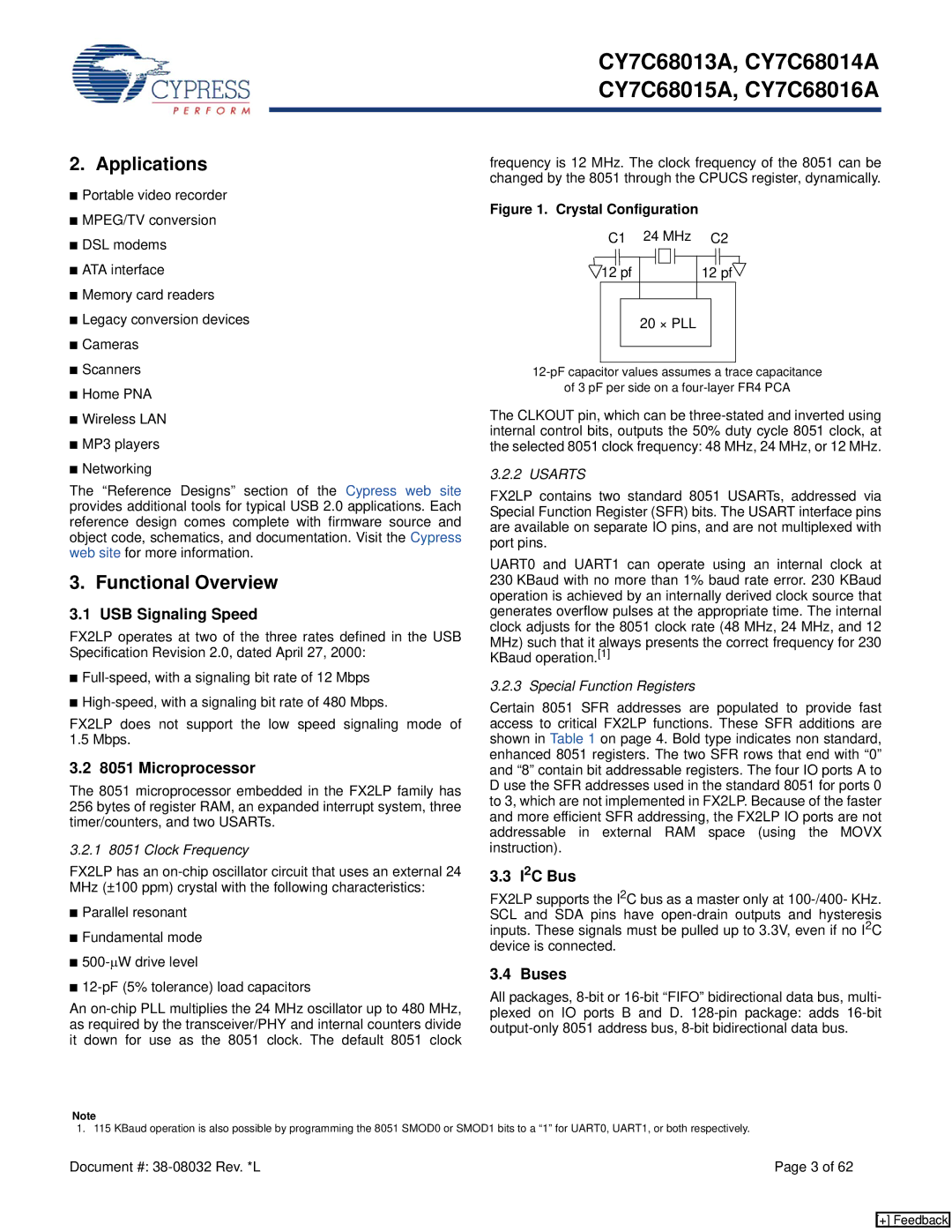CY7C68016A, CY7C68014A, CY7C68015A, CY7C68013 specifications
The Cypress CY7C68013, CY7C68015A, CY7C68014A, and CY7C68016A are part of Cypress Semiconductor's EZ-USB family of microcontrollers, known for their high performance and flexibility in USB applications. These devices are primarily used for USB interfacing and have gained popularity in various industries due to their robust features and capabilities.One of the main features of the CY7C68013 is its Dual FIFO architecture, allowing for efficient data transfer between USB and the system memory. This feature optimizes throughput and reduces CPU overhead, making it an excellent choice for applications that require high-speed data exchange, such as video streaming, data acquisition, and industrial automation. The device is equipped with a USB 2.0 interface which supports full-speed operation at 12 Mbps, ensuring compatibility with a wide range of USB devices.
The CY7C68015A, a similar variant, offers additional memory options, providing users with the flexibility to select the necessary capacity for their specific applications. This part is particularly useful in scenarios that demand more users or higher data storage, making it ideal for complex USB peripherals like printers and multifunction devices. Moreover, it includes a unique capability of upgradeable firmware, ensuring that the device remains relevant and functional as technology evolves.
In contrast, the CY7C68014A stands out with its support for isochronous data transfers, making it suitable for real-time applications that require timely data delivery. This is particularly important in audio and video applications where delays can impact performance. The device incorporates advanced power management features, allowing it to operate efficiently both in low and high-power modes.
Lastly, the CY7C68016A integrates enhanced security features, positioning it as an ideal choice for applications that require data integrity and protection against unauthorized access. It supports various encryption standards and provides secure boot capabilities, making it suitable for secure environments such as financial transactions and sensitive data processing.
In summary, the CY7C68013, CY7C68015A, CY7C68014A, and CY7C68016A microcontrollers offer a versatile suite of features that cater to a wide array of USB applications. Their design emphasizes performance, flexibility, and security, making them essential components in today's rapidly evolving technology landscape. Whether in consumer electronics, industrial automation, or specialized applications, these devices provide the reliability and efficiency that engineers and developers require.

